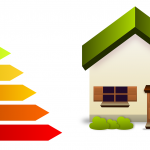Air tightness testing or permeability testing, is the process of testing a building for any air leaks and if so, measuring the total air lost from these leaks. In order for a building to pass an air tightness test, it needs to have an air permeability rating of 10m3/h/m2 or lower. Who is it for?…
Renewable Energy Trends for 2019
In 2018, a lot was done to reduce the energy we are using and ultimately wasting. For example, the new EPC rules came in for landlords which stated that their rental properties much reach a minimum EPC standard before they can be let out. We have gathered together some of our predictions for renewable energy…
Questions to ask your landlord about the energy efficiency (EPC rating) of your rental property
Whether you’re looking for a new property to rent, or are living in a rented property, making sure you are well informed about the energy efficiency rating should be a priority. In April 2018 new legislations came in stating that all landlords must ensure their properties reach at least an EPC (Energy Performance Certificate) rating…
How Energy Efficiency Impacts the Value of Your House
Ensuring that your home is as energy efficient as possible is extremely important. Having a home that’s inefficient at retaining energy impacts negatively on the environment, and can also seriously impact the value of your property. Take a look through our guide below that details how energy efficiency impacts your home’s value and the how…
Neil Vanson: Interview with an Energy Conservation Expert
This month, we are speaking to our Director Neil Vanson about his time in the energy industry, Falcon Energy’s core offering and his future predictions for energy efficiency. Neil started Falcon Energy with Hicham Rhioui and between them they have over 25 years’ experience in the industry. How did you get into the energy business?…
How to check the energy efficiency of your home for winter
You might think it’s slightly early to think about how to keep warm over the winter months, however now is the best time to start planning! Companies and trades specialising in energy use, ventilation and heat usually get very booked up in the colder months, so ensure your home is prepared for the cold weather…
How Insulation keeps your property cool in this summers heatwave
Insulation is known for retaining heat and keeping your home warm in the winter, but did you know it is just as effective at keeping your home cool in the summer? Having good insulation ensures that your home is energy efficient and cost effective all year round. What is insulation? Insulation is a lightweight material…
The ultimate guide to Air Tightness Testing
Transcript The Ultimate Guide to Air Tightness Testing What is it? Air tightness testing is the recognised method used to measure the total air lost through leaks in the building. How to pass? To pass an air tightness test, a property needs an air permeability rating lower than 10m3/h/m2. Who needs it? All new build or…
When is Air Tightness testing required?
If you’re building a new domestic property or commercial property of a certain size, it will need to undergo air tightness testing (also known as air permeability testing or air pressure testing) to comply with Part F of Building Regulations. Air tightness testing assesses the building’s ‘air permeability’, checking for air leakage through gaps, holes…
Guide on EPCs for Landlords
If you’re a private landlord renting property in the UK, there have been recent changes to the energy efficiency standards for rental properties which you must comply with very soon. If you believe you have to make changes to meet the minimum energy efficiency standards for April 2018, get in touch with Falcon Energy on…












